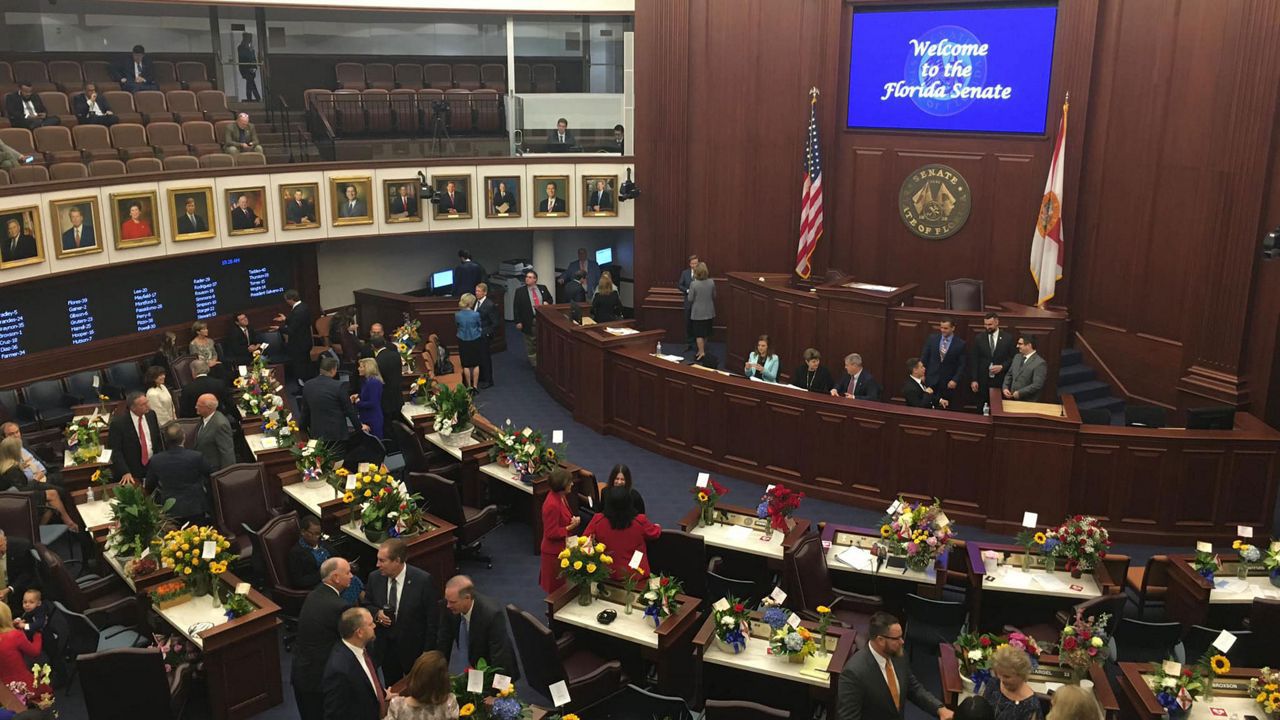Florida faces a state government shutdown as lawmakers continue to search for a path towards a budget agreement, and the State Immigration Enforcement Council looks for more federal authority in managing immigration policy.
A state government shutdown appears more likely as Florida lawmakers delay budget talks
There’s a growing sense of urgency in Tallahassee for lawmakers to strike a deal on the Florida budget.
After weeks of negotiations, Florida Republicans are still split on a plan on tax cuts and state spending.
Lawmakers have until July first get a state budget deal worked out to avoid a potential state government shutdown.
If that were to happen, Floridians would notice pretty quickly. State employees would lose pay, and all non-essential services would come to a halt. So too would things like parks and road projects. And there are often delays in court and social services too.
“So usually what happens at the national level, and probably what would happen at the Florida level, is that the governor would declare some services as essential and those services and agencies and whatnot, would stay open and continue operating. But everything else that’s funded by the state would shut down,” University of Central Florida political science professor Aubrey Jewett said.
Services like state police, state prisons and social services will remain in place as essential services, but state parks and some permitting offices are more likely to go dark.
Last week, leadership told lawmakers that they wouldn’t reconvene until sometime after Memorial Day.
Florida Immigration Enforcement Council seeks more authority from federal government in managing resources
The State Immigration Enforcement Council is pushing for more authority from the federal government to enforce President Donald Trump’s immigration laws.
Currently, all 67 counties in Florida have 287-G agreements with the local sheriff offices. That allows local law enforcement to carry out federal immigration policies.
The council met yesterday and passed a resolution that recommends Gov. Ron DeSantis speak with Trump and Homeland Security Secretary Kristi Noem, and ask for more resources.
They also want policy changes to allow them to remove and detain immigrants without removal warrants or criminal charges.
Polk County Sheriff Grady Judd is the chair of the State Immigration Council and says this recommendation reflects the challenges local agencies are encountering every day.
“As a result of the current ICE rules and regulations and the current staffing, and the lack of capacity," Judd said. "While we believe, and I believe, that ICE is doing all they can with the resources they have, at least in the Central Florida area and my interaction across the state has been no different. There has got to be rules and policy systems changes."
During the meeting, sheriffs from across the state said they were frustrated. Pinellas County Sheriff Bob Gualtieri said the office of Immigration and Customs Enforcement has an “Infrastructure” problem.
“This isn’t about gathering more data. Gathering more information. You can gather data and information to no where. It’s going nowhere because they don’t have the resources to pick the people up, don’t have the resources to house the people," Gualtieri said. "They don’t have the resources to process the people. They don’t have the resources to adjudicate these individuals on the civil immigration courts. There is an infrastructure problem. Until somebody fixes the infrastructure problem, this is not going to move in the direction that we all want to see it go."
Gualtieri also said that inmates in the Pinellas County Jail are sleeping on the floor because of lack of space.
Orange County is also having issues. Officials say the jail has seen an increase in bookings from other counties, and the current agreement does not reimburse the county at the rate of the daily cost of incarceration.
“Orange County is one of the few counties that has an IGSA agreement with the federal government. Because of that limited number of IGSA agreements, we have experienced recently with the increase in arrests, a fairly significant number of bookings into our jail," Orange County Public Safety Director Danny Banks said. "That’s never been a problem, we are able to support that. However, we are seeing a continued increase in those bookings that are coming from arrests that are occurring in other counties, other than orange."
Florida’s leaders have touted the state as the toughest on illegal immigration. The Florida Highway Patrol says it has processed nearly 13,000 illegal immigrants since March.






